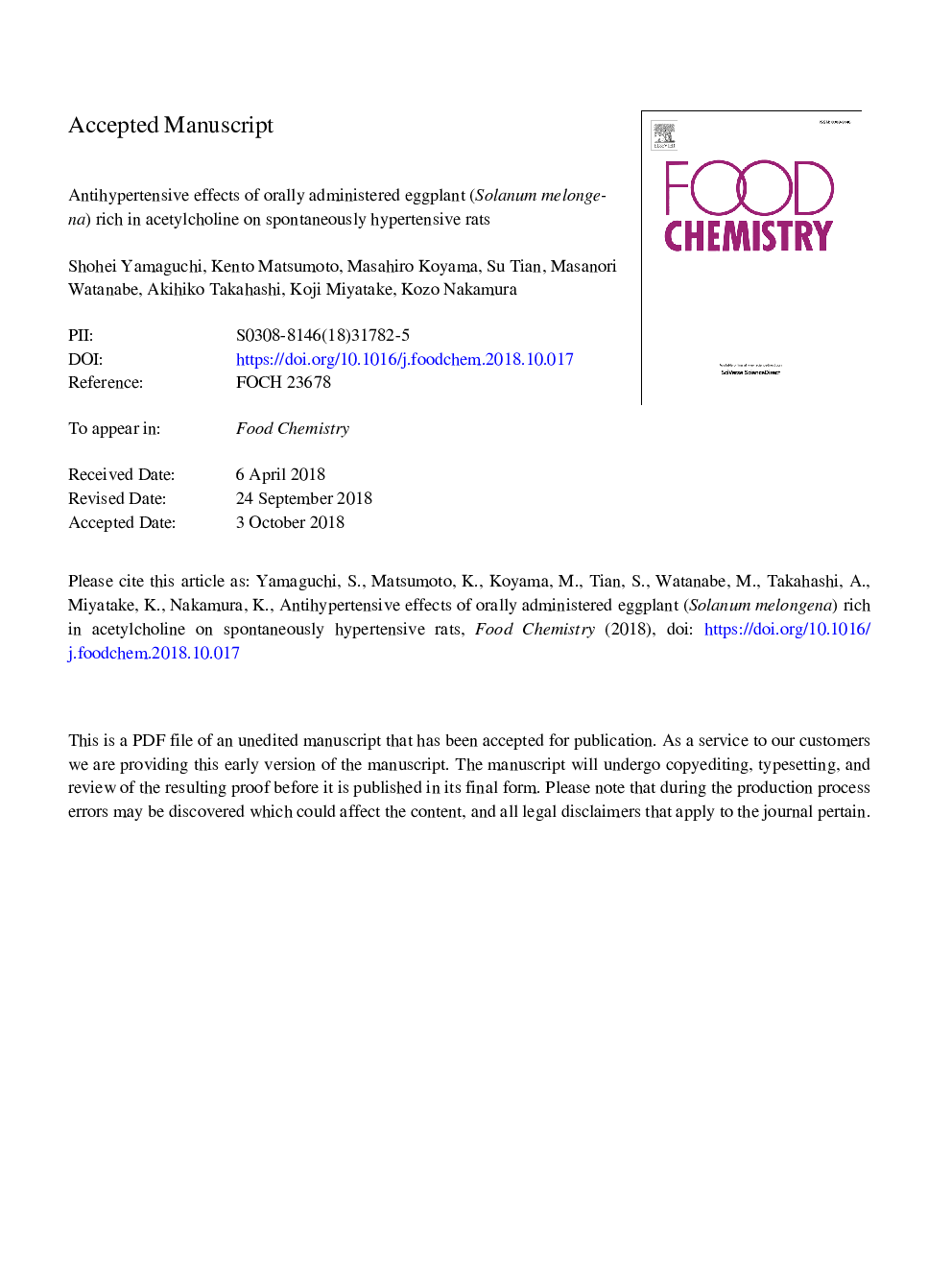| Article ID | Journal | Published Year | Pages | File Type |
|---|---|---|---|---|
| 11011805 | Food Chemistry | 2019 | 35 Pages |
Abstract
Our previous results (Nakamura et al., 2013, 2016) indicated that acetylcholine (ACh) in orally administered foods exerts antihypertensive effects. Eggplants (Solanum melongena) contain abundant ACh (Horiuchi et al., 2003), and their food functionality was discovered, using spontaneously hypertensive rats, by measuring blood pressure after oral administration of a suspension of lyophilized eggplant powder. We found that lyophilized eggplant powder induced significantly lowered acute and chronic blood pressure levels at very low doses of 0.0650â¯mg/kg body weight (b.w.) and 0.821â¯mg/(kgâ¯b.w.·day), respectively. Chronic administration suppressed adrenaline and noradrenaline excretion in the urine, and aorta assays showed that eggplant acted on the M3 muscarinic ACh receptor (M3 mAChR). ACh was conclusively shown to function as the main component of eggplant contributing to antihypertensive activity by suppressing sympathetic nervous activity via M3 mAChR. This report reveals a new food functionality of eggplant and its potential as a novel antihypertensive food.
Related Topics
Physical Sciences and Engineering
Chemistry
Analytical Chemistry
Authors
Shohei Yamaguchi, Kento Matsumoto, Masahiro Koyama, Su Tian, Masanori Watanabe, Akihiko Takahashi, Koji Miyatake, Kozo Nakamura,
